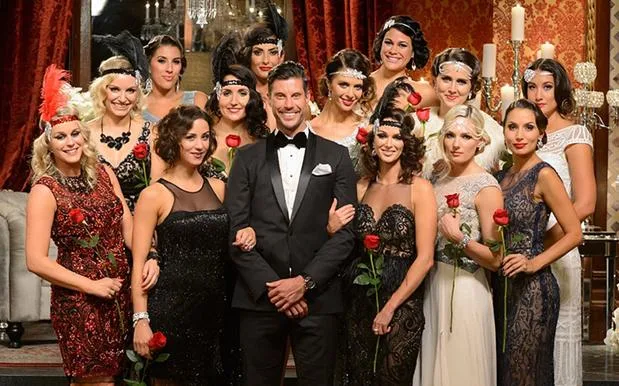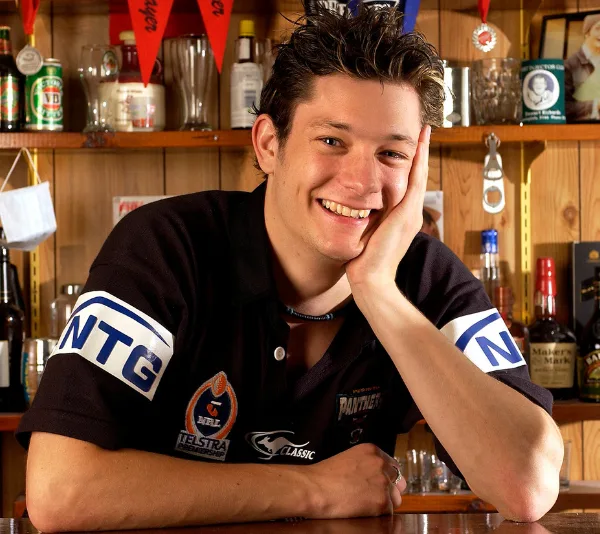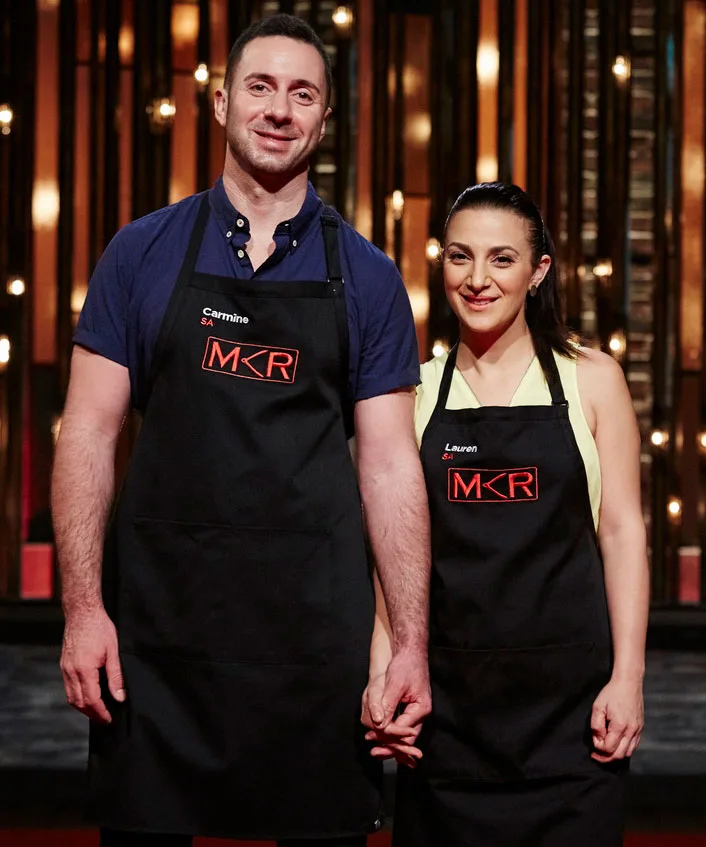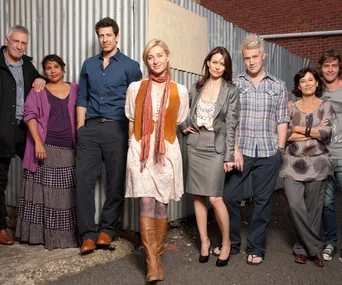Sometimes your five minutes of fame can last forever, while others who star on reality TV shows are never seen or heard of again.
We look back at some of those who have made it big, and the secrets to their success.

The Bachelor kicked off Sam Wood’s career.
(Image: Network Ten)Perfect match
Sam Wood had to be pushed into applying for The Bachelor Australia.
He was at the gym he owned in Melbourne when one of the women who trained there convinced him.
“She literally grabbed the computer and said, ‘Come on, let’s look up applications’,” Sam remembers.
When he was chosen as the Bachelor, Sam considered it a “once-in-a-lifetime” opportunity.
“Never in my wildest dreams did I think it would give me the opportunity to create the career I have,” he says.
Sam met his wife, Snez, on The Bachelor. The happy family is cuter than ever!
(Image: Instagram @samjameswood)So what’s the secret to success after reality TV?
Sam says it’s about being “authentic” and keeping ambitions in line with what you do.
“Some people go on a reality TV because they’re lost from a career perspective,” he says.
“They’re hoping that’s going to be the answer. And it can often dissipate as quickly as it got some traction.”
READ NEXT: Sam and Snezana Wood’s cutest family photos
The good and the bad
Rob Mills was singing with a covers band in Melbourne when a friend told him about a brand-new TV show called Australian Idol.
He turned up for the auditions after a night when he’d done two gruelling pub gigs.
“I didn’t sleep – I went straight to McDonald’s, then straight there and stood in line for about six or seven hours,” Rob recalls.
It was worth it. Rob came fifth in the first season of Australian Idol in 2003 and scored a record deal with BMG.
The following year, ‘Ms Vanity’, the first single from Rob’s album, Up All Night, achieved gold status.

A fresh faced Rob Mills poses for an Australian Idol shoot in 2003.
(Image: Getty)A little more than a decade later, Lauren Finelli, 34, was at her home Adelaide with her husband Carmine. She hated her job and was looking for a new one.
“I was actually on Seek and then I thought… I might look for casting calls,'” she reveals. “When My Kitchen Rules came up, I thought, ‘Yeah, might give this a crack. I conned Carmine into it, saying, ‘This will change our lives if we get through.'”
Lauren and Carmine did get through. The couple were “honest” with their opinions of other teams’ food, which Lauren insists was “not very good”.
With her sights set on media career, or at least a product line, Lauren felt being truthful was the way to go.
“I wanted airtime,” she says, “and I was going to get it.”
After finishing the 2016 season as runners-up and undisputed villains, the couple were approached by talent agents.
Although Lauren says she paid a lot to one agent who did her branding, no media opportunities came her way. She then struggled to find work in admin.
“I wouldn’t even get to the interview stage,” she says.

Carmine and Lauren were series villains in 2016.
(Image: Supplied)Rob Mills’ and Lauren’s stories read like the post-reality TV dream and the post-reality TV nightmare.
Rob had job opportunities thrust at him, while Lauren had work snatched away from her.
But even if you make a few regrettable decisions along the way, being on a reality show can pay off.
MKR‘s Lauren is now working for a food distributor, a job she says she got because of the show.
As for the media career, she’s hopeful.
“Who knows what’s in store for Lauren,” she says.
READ NEXT: Meet Rob Mills’ stunning TV presenter girlfriend
Idol thoughts
Looking at the contenders from that first season of Australian Idol, and it’s hard not to be impressed.
Guy Sebastian, Shannon Noll and Paulini Curuenavuli became household names, and Rob Mills is now considered one of Australia’s leading musical theatre stars.
But there was also Axle, who’s gone from Video Hits to US series Shameless and Agents Of S.H.I.E.L.D., and Courtney Act, who has her own TV program in the UK.
Compare that with Nine Network’s The Voice Australia. The show, which kicked off in 2012, has had massive ratings, but they haven’t translated into huge album sales for the winners.
Aussie music legend Mark Holden was one of the Idol judges who recognised the talents of Guy and the others.
So why does he think those early seasons launched so many lasting careers?
“Idol had the advantage of being first and tapping into a huge pool of talent the major labels hadn’t expressed any interest in,” Mark says.

A baby-faced Guy and his wife,Jules, walking the red carpet at the 2004 Logie Awards, right after he rose to fame.
(Image: Getty)For Rob Mills, the dream run didn’t last long, though. After releasing a second single from his debut album, the record company dropped him.
“I went back to labouring and did the occasional pub gig. Nightclub appearances had dried up. There was a new series of Idol out. It was pretty sad,” he says.
Then came a role in Grease – The Arena Spectacular, alongside Natalie Bassingthwaighte and Magda Szubanski.
It was a turning point for Rob, who says, “That was a real moment for me to go, ‘I need to work harder, and I need to be better.'”
Three years later, he wowed audiences in the musical Wicked.

Rob Mills is a star of the stage.
(Image: Getty)Cooking up a career
Network Ten’s MasterChef Australia has been the gold standard for producing TV mainstays, including season one’s Julie Goodwin, Poh Ling Yeow and Justine Schofield, season two’s Adam Liaw, and season three’s Hayden Quinn.
Recent contestants have been less likely to score their own star vehicles. But plenty have still forged new careers in the food industry.
Sydney teacher Elena Duggan won MasterChef Australia in 2016. She had applied for the show after the death of a student, looking for something that would “bring me joy”.
Elena is now working with Kitchen Challenge, a food-based program that pairs CEOs with vulnerable people. She’s also working with school students training them as baristas.
Reality TV fame has helped, in some ways.
“A lot of people want to work with me,” she says.
She has some advice for anyone going on reality TV with the goal of fame.
“I think if it’s all self-indulgent, it may not work for you,” she says.
WATCH BELOW: Rob Mills talks about his mental health battles.

.jpg?resize=380%2C285)
